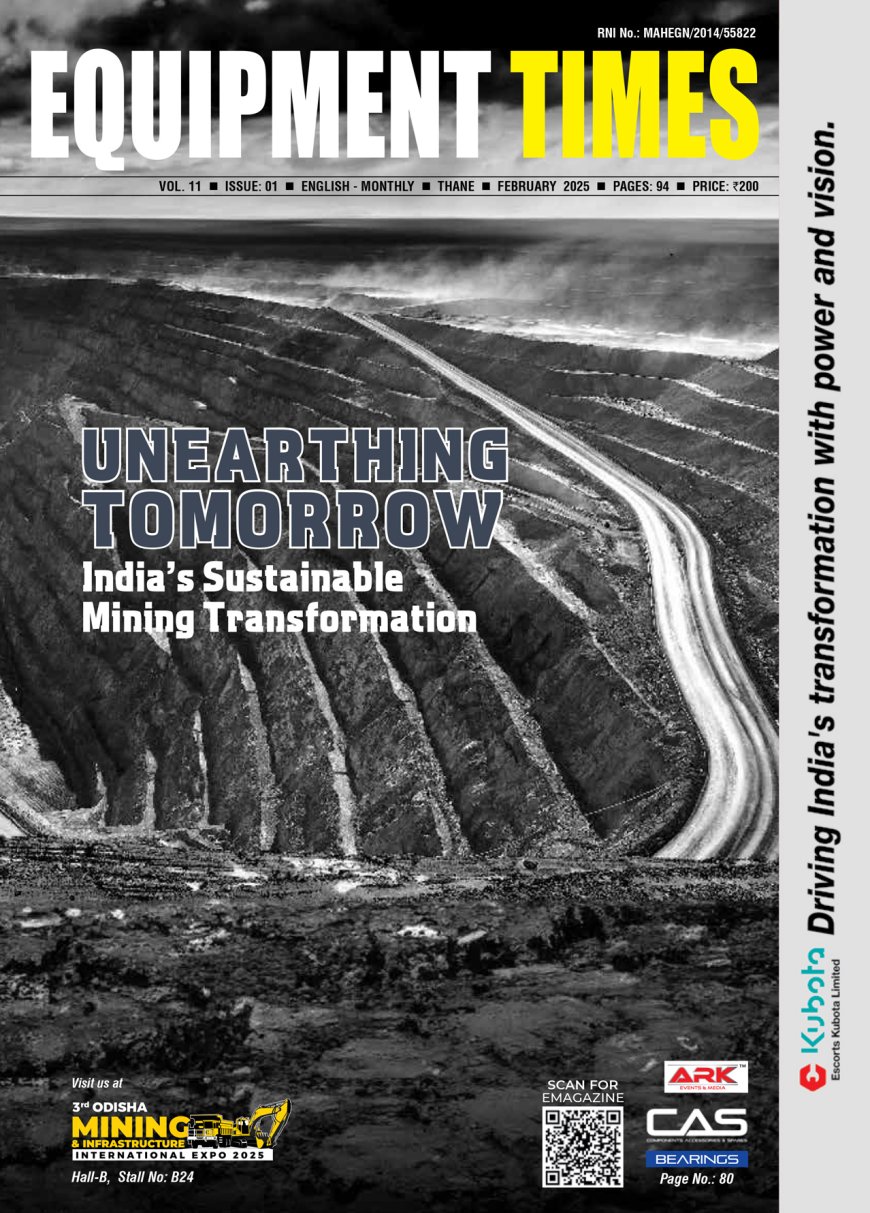The planned infrastructure investments of $ 1 trillion should be made to happen
Anup Nair MD, Martin Engineering India Impact on the sector and the company We are in the bulk material handling sector. Our customers are large size process industries like steel plants, cement plants etc.
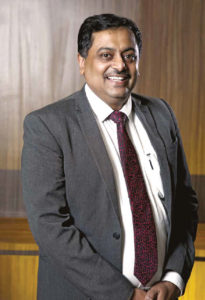
Anup Nair
MD, Martin Engineering India
Impact on the sector and the company
We are in the bulk material handling sector. Our customers are large size process industries like steel plants, cement plants etc. As you are aware being process industries we are unable to stop our production all of a sudden due to the lockdown. Hence we are working with minimum workforce and adhering to all social distancing norms prescribed by the government. As a result, we continue to have a healthy order book.
However, we are foreseeing long term impacts. Our customers may have to cut their production on account of the lower demand from the construction sector, this would impact our volumes. This year for almost two months we have a situation of zero revenue with no significant reduction in expenditure. This is likely to impact our bottom line as we are not resorting to any tough measures impacting employees as we are very much employee oriented organization. We have paid all our employees including the casual labourers the full wages. This was in the true spirit of our values “Ignite excellence so that communities flourish and families thrive”.
The challenges industry is facing due to covid 19
As mentioned earlier, the lockdown will affect the bottomline of the entire industry. Apart from the revenue and expenditure the current major challenge is in converting the orders in hand to cash ie. execution. For example, as our factory is located in rural area outside Pune city, we were hopeful of resuming the production on 20th April as per the guidelines of the Central and Maharashtra Government. However as of now the permissions have not been granted to us and others by the District Industries Office.
We had planned and prepared all proactive measures and a detailed SOP to ensure personal hygiene and social distancing norms as we are very much concerned about the health and safety of our employees. This unfortunate and unforeseen situation is being faced by all.
Steps initiated to overcome and sustain growth
As of now it appears that sustaining growth is not a reality this year. We have been growing at a rapid pace till now as we were incorporated only recently. However this year the best aspiration can be to exit at the same levels of last year.
We have taken certain conscious steps to improve our reach by expansion of channel partner network, freezing all recruitments, curtailing all avoidable non employee expenses such as material costs, inventory costs, foreign travel expenses (which anyway is not safe) etc, so that the profitability is maintained to the extent possible. We are fortunate that we are operating without borrowed working capital and hence interest costs are not hurting us.
Policies & reforms expected from government
Government can support the industry apart from the announced concessions by speeding up the spending in the infrastructure which would in turn boost the sales of our customers and indirectly benefit all industries. The planned infrastructure investments of $ 1 trillion should be made to happen so that the woes faced by the industry in this lockdown is wiped to some extent. Another area where government can help is in reducing the GST rates and widening the tax net.
CSR and labour reforms
There is a norm that if a company has made profit for the past 3 years 2% needs to be spent on CSR. We are otherwise also spending but the same should be made voluntary. Also another option can be waiving this for the organizations that have paid full wages to employees during the lockdown. Its also a CSR.
Most of us will start with controlled production

Vikram Sharma
MD, Kobelco
Covid impact on CE Sector
CE Sector is very severely affected due to COVID – 19, like many other sectors. CE which had already slowed down in the last FY ending Mar 2020, starting from Apr 2019 got a severe jolt in March 2020, when the production plants shut down.
As most of the activity with CE is labour intensive, and involves lot of machines and material movement, it was bound to come to a complete halt. Also the usage of the machines in the market also came down to about 20% in March last week, compared to the beginning of the month. Till now there is virtually no activity, except in the mining sector. That too as it is a essential sector, and most of the labour stays around the worksite, hence it has been allowed to continue. The other sectors are facing the restrictions on movement of people, raw material etc. So it would be correct to say, that the financial impact is very serious for CE manufacturers, the vendors and the dealers. Even when the reopening takes place, it will be a big challenge to get the workers back, manage the components and parts supply to commence, as well as have the banks and finance companies to start full scale financing. Hence it will be a slow start.
Revival strategy
First and foremost, focus on restarting will be to start with all the people related safety and health guidelines in place. These factors will be at the forefront. Most of the companies in CE, have made exhaustive preparation of practices and facilities, to be set up for safety.
As this lockdown has impacted everyone financially, most of us will start with controlled production, and minimise the capital locked in inventories, credits etc. At the same time we will have to support our Vendors who also would have gone through a tough patch. We have worked out some support for the channels too.
Another possibility is that many companies would now resort to partial ‘work from home’ culture. This will also help in cutting costs, and also be supportive to the control of social distancing etc. at workplace. More usage of communication by net would also help in reducing travel and other operational costs, and bring faster financial recovery.
However we have to watch out for material costs, which may go up, as happened in some other economies, after restart.
Labour support
The CE Industry has been very focussed towards taking care of not only its own workforce, but also migrant and daily wagers etc. Most of us have contributed to many relief funds, some have used their existing factory canteens to provide cooked food on daily basis to outside labourers. Also we have been supporting the workers by keeping the jobs intact, and paying their salaries. This will continue.
Infrastructure sector can play a big role in the restart of the economy
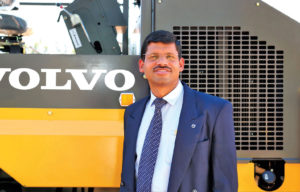
Dimitrov Krishnan
MD, Volvo CE India
Tell us about the challenges faced due to COVID-19 and its impact on the Construction Equipment sector and overall economy.
COVID – 19 initially started as a supply crisis for the industry especially for components sourced from China, Korea and Japan due to the impact of the disease in those countries. However, in a pretty short time, it has impacted the rest of the world and with lockdown in most countries in the world it has become a global crisis that has huge impact on society and businesses across the world. It is a global health crisis which is unprecedented in its scope and impact since the world war II.
In India we have seen its impact since mid March and more so since the announcement of lockdown by the honourable PM on 24th March. Most of the construction sites have stopped operations and so have all of the industrial operations in the CE industry just like all other industries.There is just a small fleet of equipment working in Coal mining sector to keep power supply on as a essential service. Parts supplies to these sites have been made available based on special permissions for the same. In the coming weeks and months, we will also see a demand crisis due to lack of confidence in the buyers. We expect the government to come up with large stimulus package to kick start the economy in the rest of the year. Infrastructure sector can play a big role in the restart of the economy in the new normal that we will see going forward.
With depreciation in sales, what will be your revival strategy to handle the situation post the lockdown?
Our strategy to deal with the crisis is to accept the reality that this crisis is unprecedented and it will challenge humanity in a big way. During the lockdown period we have focused on remaining engaged with our employees, our dealer staff and our customers. We have tried to infuse positivity among them by sending out positive messaging to all of them through all available social media channels. Communication is key in Crisis and we have been driving continuous engagements with all our stakeholders at an individual level and also using mass communication means.
Our dealer teams and the Volvo team remain closely engaged with our customers. We have developed several online classes to focus on competence development of our customer staff. We are revalidating all customer enquiries to service them and take it up as necessary. We are making sure that our supply chain is able to deliver the delivery expectations of our customers. We are also working to understand our customers commercial needs in the post COVID world and come up with solutions.
The COVID-19 wipeout has impacted laborers immensely. What are the measures being taken to support them?
Infrastructure sector uses a lot of migrant labourers and we have seen the huge impact it has had. Volvo group has been supporting these migrants in a targetted way and providing relief for their nutrition and health care in and around Bangalore. I am also aware that most of our customers are also providing such support to migrant workers in their projects and also near their sites.
Reduction in working hours should be considered

PL Muthusekkar, MD
Nord Drivesystems Private Limited
COVID impact on CE
Covid 19 has caused tremendous damage to the Industry and Economy, which will take at least about 6 months for many sectors including Construction equipment Industry to recover. In general investments and expansion will be halted or deferred thus Infra business will take the first hit and consequent effect in the equipment industry. However Government and PSU can quickly revive the Industry.
Stock pile up and cash flow would be the first issue to be tackled by the Industry Employee safety and precautions is another difficult but important task to tackle. Not just the present times but the tunnel is also long and light at the end is farsighted.
Revival strategy
It starts with Public sectors and Government as there is disposable cash available and they look at long term returns, also sectors have to be identified where activities and Sales approach has to be intensified like Pharma, Medical care, hygiene, Automation, Digitalisation, Exports, Telecom, 5G and related infrastructure industries. These are the shining stars in the current scenario. So pressing the accelerator in the right direction will reduce the impact and bring in some positive returns.
People build the organisation and make it grow, so the policies should be people friendly and find amicable solutions with the workforce as they also understand the gravity of the situation. Certainly retrenchment or reducing the people is not going to go well both with the business and morale, may be pay cuts, reducing leave, working on holidays all could be the probable solutions. Also Government should consider slight change in the working hours, may be an hour or two per day at least for couple of years to bring back the productivity levels.
We need to ensure business losses due to Covid 19 are restricted to this financial year so that we can start afresh next year, putting behind all the negative business sentiments. Stay Safe and take care.
Long-term growth for construction & earthmoving equipment is intact & positive

Sandeep Singh
MD, Tata Hitachi, Construction Machinery Company Private Limited
Tell us about the challenges faced due to COVID-19 and its impact on the Construction Equipment sector and overall economy.
Clearly, it’s been a challenging year. Till YTD Feb for the 3 major segments – Excavators, BHL & WL – which comprise a major portion of the CE industry by volume – the YoY growth has been negative 19% growth over the same period last year.
The industry has been adjusting production due to the slowdown & many firms have been announcing production holidays through the year. Therefore, production was gradually calibrated to meet market demands & inventory adjustment was a continuous process.
As far as impact of Corona virus is concerned, it has come as a sudden factor in this month, we are evaluating the situation & will take necessary action as per market requirements.
With the outbreak of Covid19, it is difficult to assess the prospects for the upcoming year and we need to see how the situation evolves.
Having said this, the government has committed to substantial investment in infrastructure over the next 5 years as detailed in the NIP.
These are detailed below:
Nearly 70% of that investment is envisaged in infrastructure as seen above.
- 35000km Bharatmala project – 10000km awarded
- Balance 25000km to be awarded in next couple of years
The intent is to build infrastructure to increase competitiveness of the country, increase output & improve ease of doing business.
The second focus is in building more advanced infrastructure like:
- High speed railways, (MUM-AHD) (~Rs. 1.1 Trillion, Rs. 1.1 Lakh Crs, USD 15.5 Bn)
- Expressways, (800km under Bharatmala)
- Smart cities, (100 cities:Rs. 2.03 Trillion, Rs.2.03 Lakh Crs, USD 28.1 Bn approved)
- Smart infrastructure etc.
We expect demand to slowly recover over the year – once we recover from Covid19 – given the above focus as well as the various measures taken to improve business sentiment & availability of liquidity. We believe that India’s infrastructure sector is poised to grow significantly with the increasing demand for development of key infrastructure projects such as roads and highways, rural connectivity, urban infrastructure including metro rail projects, ports and airports, industrial corridors, smart city projects, etc.
The Government has initiated various steps for accelerating infrastructure development. Investment and implementation of key projects along with corrective measures and industry friendly policies of the Government we believe, will greatly help the infrastructure development in our country.
Therefore, the long-term growth for construction & earthmoving equipment is intact & positive.
With depreciation in sales, what will be your revival strategy to handle the situation post the lockdown?
The sales numbers came to an abrupt halt after the lockdown. It will take some time before the demand levels come back to pre COVID levels. It will need a carefully calibrated approach by the Government to keep the MSMEs( many of whom are our vendors) afloat and also revive financing in this sector(which is largely conducted through NBFC’s) Meanwhile we are keeping up our engagement levels with our dealers by making regular payments against services that have been rendered, online training at various levels and frequent Leadership communication. Our Sales force is also keeping close contact with our customers and offering online support services.
Through our Industry Association, we have also informed the Government about the issues impacting our Industry and recomended the urgent need for intervention.
The COVID-19 wipeout has impacted laborers immensely. What are the measures being taken to support them?
Our Dharwad plant distributed grocery packets to migrant workers and laborer’s in the presence of the Dharwad West MLA Arvind Bellad. The grocery packets were handed over by Balavijayan – Vice President SCM and Dharwad Administration, G B Kulkarni – Plant Head, Dharwad and Prashant Dixit – Senior Divisional Manager (Admin and CSR, Dharwad). 500 packets were distributed: each one providing support for two weeks.
CSR activities Tata Hitachi works, traditionally, with the stakeholder communities in the villages around our plants in Kharagpur, West Bengal and Dharwad in Karnataka.We work extensively with these villages in improving the education and health infrastructure as well as rural development and skilling.
With the sudden and catastrophic advent of COVID- 19 in the country, we reached out to the District Administration in both these areas and have undertaken a series of activities supporting the fight against this menace.
These include supply of facemasks, hand sanitizers and thermal scanners. Apart from this a disinfectant tunnel has been designed and developed by us and handed over to the District Hospital in Dharwad.We have partnered with CII, Karnataka in Bangalore, again for supply of sanitizers and thermal scanners. We have also supported YI (Young Indians, a part of CII), a group of young volunteers who have undertaken relief work in Karnataka. Support for stranded migrants and daily wage workers has been offered through the FeedmyBangalore initiative.
A contribution has been made to the Relief Fund in West Bengal and we are gearing up to supply food rations and a health Kit to some of the villages in Kharagpur through CII and NGOs.
As part of ICEMA, the Indian Construction Equipment Manufacturers Association, we have created Sourcing teams from across members to identify vendors of critical PPE as well as parts for ventilators. ICEMA has also created a fund to support the COVID- 19 relief work.
We know the effect of this pandemic would be deeply felt and the efforts of the Government would be continually supported by us.
Financial support package critical to kick-start economy
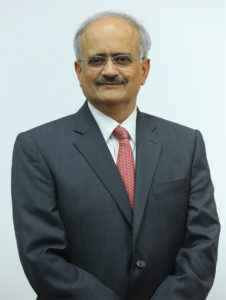
Vipin Sondhi
MD & CEO, Ashok Leyland Limited
Tell us about the challenges faced due to COVID-19 and its impact on the Commercial Vehicle sector and overall economy.
The Covid-19 crisis has brought the entire economy to a near standstill. The Government will have to manage the state of the economy, especially for the stressed sections of the society – the daily wage earners, the agriculture sector, and the MSMEs. MSMEs will be needed to be supported as they are the backbone of Indian industry and form the key element of product supply chain – be it agri-processing, textiles, or auto-ancillaries. Some measures of support to be considered would be – easy access to working capital and liquidity through banks and NBFC’s; providing Interest free and collateral free loans; introduction of an incentive for MSMEs to help them pay salaries and wages to their employees in these times; extension of the NPA recognition period from 90 days to 360 days; ensuring that all pending payments to industry/MSMEs are cleared immediately by the government departments and PSUs. We at Ashok Leyland have prioritized settlement of dues to MSME’s and have instituted a process of paying the MSMEs even prior to the statutory payment due date.
The CV sector is expected to witness an adverse impact in the short-term on account of reduced demand. The need of the hour would be to boost demand. Some of the demand side Interventions to trigger consumption (Individuals, Government & Corporates) would be -:
- Accelerate infrastructure spend of Rs. 1.7 Lakh Crore. (already allocated in budget) to provide immediate impetus to the economy. Significant amount of this money can go towards each of the 700 districts in the form of Low cost housing and Road construction.
- Building agriculture warehousing and cold storage chains near farm gates.
- Scrappage policy for automotive (>15 years) to incentivise new purchases.
- Special package required for airlines, bus operators, hospitality, tourism, and retailers.
- Export stimulus and re-opening of port operations. These would be some of the measures which could boost demand.
With depreciation in sales, what will be your revival strategy to handle the situation post the lockdown?
The economy needs to turn around and in turn that will help the CV sector sales. An economic support package would be critical to kick-start the economic activity after this long period of disruption. Supply chains need to be re-started, migrant labour needs to come back to work (in a systematic and safe manner), and consumer demand needs to be triggered. There should be gradual opening of other sectors to revive economic activity and enable employment (especially for casual, and daily wage workers). Clear operating guidelines should be provided to ensure social distancing and preventing spread of the virus. Unless the eco-system through the value chain opens, a truck cannot be produced or sold.
As and when we get out of the lockdown, we at Ashok Leyland will be prepared. As we recover from this health emergency, we will restart our operations in a safe & sustainable manner. We are putting all measures for operating after the lock-down by accepting the new normal. We have developed workplace policies that provide a safe working environment, while enabling sustainable productivity levels. We are working with our supply chain partners, dealers and all key stakeholders to design processes and material flow in a responsible manner. We will engage with customers to support changes in their operating models and/or product preferences and requirements.
The COVID-19 wipeout has impacted laborers immensely. What are the measures being taken to support them?
Migrant labour needs to be cared for and we should take all necessary measures to ensure that they are provided with food and shelter. In our case, our manpower is predominantly from local areas and our contract manpower are also around premise and since we have been extending support by means of salary as well as food and health care, we should be able to ramp up as soon as we are ready to restart.
On resumption we will ensure that we provide mandatory health screening for migrant labour once they report for duty, we are also setting up quarantine facilities for migrant labour, if COVID-19 symptoms are identified.
It would take couple of months for the sector to get back on track
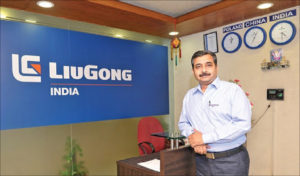
Nischal Mehrotra
Director – Sales & Marketing, Liugong India Pvt. Ltd.
Tell us about the challenges faced due to COVID-19 and its impact on the Construction Equipment sector and overall economy.
The pandemic has brought not only India but the entire world to standstill thereby severely hitting the economy. Although it is too early to assess the overall losses but it would take couple of months post lockdown for the sector to be on the track.
Challenges faced would be primarily from logistics due to unavailability of drivers for transportation. Secondly the supply chain as the construction equipment sector imports good number of components, the hike in dollar rate would also be a challenge.
Last but not the least is the new emission norms (change from present BS 3 to BS 4). Manufacturers are still in the process of liquidating BS 3 machines which is held up due to the pandemic.
With depreciation in sales, what will be your revival strategy to handle the situation post the lockdown?
The role of government would be really vital in such situation wherein the acceleration in terms of delayed projects and awarding new projects need to happen on fast track.
NHAI has DPRs of works worth more than Rs 20,000 crore available for this year.
Immediate revival strategies would include prioritizing the projects, enhancing labour health and safety, strengthening tieups with banks and financial instructions for better and smooth funding.
The COVID-19 wipeout has impacted laborers immensely. What are the measures being taken to support them?
At LiuGong we value people the most.
We have already chalked out a plan and circulated it amongst our channel partners across the country for the health and safety norms of the labour which includes regular sanitization, guidelines for labours staying at sites, ensuring timely compensation for the work done.
Hits: 18










